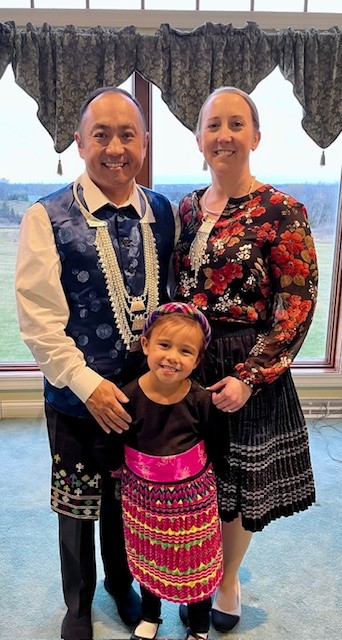Old National’s Chimeng Yang on Asian American, Native Hawaiian and Pacific Islander Heritage Month
Observed during May, “Asian American, Native Hawaiian and Pacific Islander Heritage Month” recognizes the contributions and influence of Asian Americans, Native Hawaiians and Pacific Islander Americans to the history, culture, and achievements of the United States.
President Jimmy Carter (1978) first signed a joint resolution recognizing a week’s celebration, while George H.W. Bush (1990) signed a bill extending the recognition to a month. President Barack Obama (2009) and President Joe Biden (2021) signed additional proclamations, with the latter adding the recognition for native Hawaiians.
This interview series with Old National Bank employees celebrates those whose families, like virtually all Americans, at one time immigrated and have helped shape the rich diversity found in the United States.
CHIMENG YANG
Community Banking Market Manager, Southeast Wisconsin
A five-year team member at Old National, Chimeng is from Vietnam and the Hmong culture, an indigenous group in East and Southeast Asia.
"Asian American, Native Hawaiian and Pacific Islander Heritage Month allows me to reflect on who I am and my cultural background of being Hmong," Chimeng says. "As there are thousands of different cultural groups and ethnicities that fall into being AANHPI, it is great to see on social media platforms the celebration of the uniqueness of each individual group. It paints the picture that even though we may look different and celebrate our heritage differently, we are closer and more similar than meets the eye. The love of being around our families and neighbors is a very human characteristic. It shows that community is what makes us happy."

I have learned to focus during this month on learning more about the history of being Hmong, and as I grow older, you tend to value that a lot more. AANHPI month provides a designate time as life is so fast paced, and you lose track so quickly.
Q. Why is it important that organizations recognize heritage months?
I feel that it is important because it forces those who may not know to at least have a glimpse. Until we become educated on cultural differences, those barriers of misunderstanding will always cause confusion and ignorance. In bringing to the forefront, it allows for conversation and a platform to strive to become a better team, better community, and most important, better people."
Q. What does inclusion mean to you?
I see inclusion as being invited to the table, being allowed to participate, AND most importantly, others coming to the table with an open mind and open ears. The person may think they are included, but it takes others to accept them to truly be included.
Q. Who is someone who identifies as AANHPI that you admire and why?
I admire my parents and grandparents who overcame war, racism, prejudice, and sacrificed their lives to allow me to build a better future in the United States. All Hmong people share a common ancestral path of leaving their homeland due to the recruitment of the CIA during the Vietnam War. As the first generation born in the U.S., we hear stories and see pictures, but it humbles me to know that they lived it.
Q. What do you wish people understood about AANHPI Heritage Month?
Not specifically to AANHPI, a wish would be that, in opportunities where you find yourself around those who may be different than you, be proactive in learning more about that other person. It’s not just about race or ethnicity -- strive to find value in others through their uniqueness. Utilizing diversity months to test yourself to share who you are and learn about others helps the world be a better place. You most likely will find you have more in common than you think.
To learn more about Asian American, Native Hawaiian and Pacific Islander Heritage Month and the 2024 theme, Advancing Leaders Through Innovation, click here.
